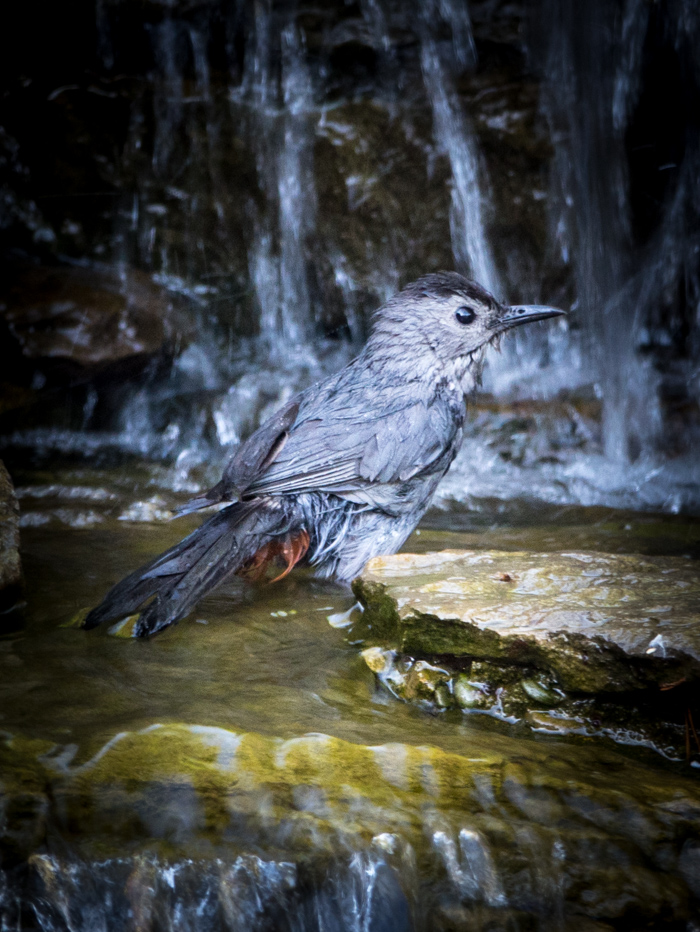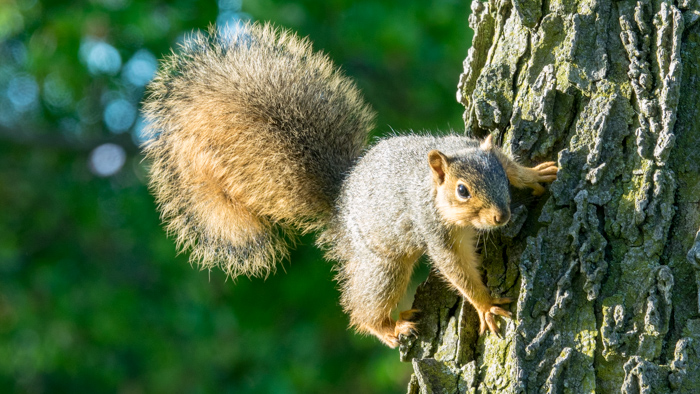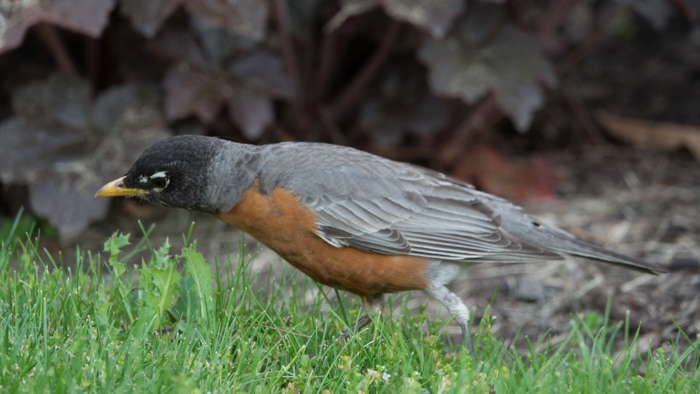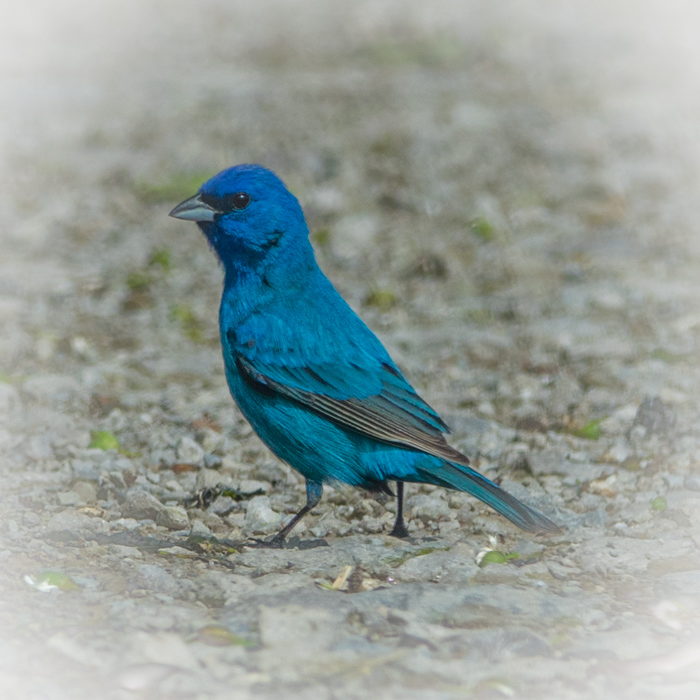A Walk in the Park
Sadly, I am far away from my beloved Oregon. It is Sabbath afternoon and I am in Cleveland, Ohio at Case Western University where my daughter graduated. I am not hiking. I am sitting in Wade Oval near the botanical gardens. It is beautifully landscaped with lots of grassy expanse, large trees, a variety of flowers, and curving sidewalks. People casually stroll or bike through this peaceful place. As I sit here typing, a chipmunk and robin approach within six feet of me. A catbird takes its evening bath in front of me. I am grateful that inspired men and women preserved this little oasis.

A gray catbird takes its evening bath in the fountain
Yes, I much prefer to hike through national parks and backpack through the wilderness, but I am not always free to do so. None of us are. Therefore, in between banquets we learn to keep up a healthy diet of little meals of ordinary food. In between long nature retreats with God we learn to appreciate the little blessings of nature and receive His benefits.

Friendly, but wary, a squirrel checks me out
A recent study measured the benefits of a 90 minute walk in the park. Before explaining their findings, however, the researchers confirmed what we have known for well over a hundred years.
Urbanization has many benefits, but it also is associated with increased levels of mental illness, including depression. It has been suggested that decreased nature experience may help to explain the link between urbanization and mental illness. This suggestion is supported by a growing body of correlational and experimental evidence.
In different language, Ellen White made the same point:
The physical surroundings in the cities are often a peril to health. The constant liability to contact with disease, the prevalence of foul air, impure water, impure food, the crowded, dark, unhealthful dwellings, are some of the many evils to be met.
It was not God’s purpose that people should be crowded into cities, huddled together in terraces and tenements. In the beginning He placed our first parents amidst the beautiful sights and sounds He desires us to rejoice in today. The more nearly we come into harmony with God’s original plan, the more favorable will be our position to secure health of body, and mind, and soul. (Ministry of Healing, p. 365)
Still in the introduction to their study, the researchers summarized a body of scientific data encouraging us to spend time in nature, rather than in the artificialness of the city.
One aspect of urbanization that has attracted research attention in recent years is a corresponding decrease in nature experience. Using a variety of methodologies, researchers have demonstrated affective and cognitive benefits of nature experience, thereby contributing to an evolving understanding of the types of psychological benefits of which humanity may be deprived as urbanization continues. Correlational findings show that growing up in rural vs. urban settings is associated with lesser stress responsivity. A recent longitudinal study, tracking the well-being and mental distress of more than 10,000 people over a period of nearly two decades demonstrates a significant positive effect of proximity to greenspace on well-being. This effect traces to living location within the same individuals as they moved closer or further from greenspace. Other correlational studies reveal that window views that include natural elements (compared with window views that do not) are associated with superior memory, attention, and impulse inhibition, as well as greater feelings of subjective well-being. These correlational findings are buttressed by experimental findings showing, for example, that nature experience (usually in urban greenspace) can improve memory and attention and increase positive mood. Experimenters also have used psychophysiological methods to characterize the ways in which images and sounds of the natural environment lead to decreased stress and negative emotion after participants have been subjected to stressful stimuli. Taken together, these and numerous other studies provide compelling evidence that nature experience may confer real psychological benefits.

I could almost reach out and touch this robin searching for worms
There is a multitude of scientific and Biblical data to encourage us to take the time to receive a multitude of benefits in God’s creation. Time in nature is never a waste of time, even if it is a short time in a small piece of nature, like a park.
This study focused on the effectiveness of a 90 minute walk in a park to reduce rumination—negative thought patterns such as dwelling on past mistakes and personal flaws.
Rumination is a prolonged and often maladaptive attentional focus on the causes and consequences of emotions—most often, negative, self-relational emotions. This pattern of thought has been shown to predict the onset of depressive episodes, as well as other mental disorders.
The study not only measured subjective impressions through interviews after the walks, but they used scientific equipment to measure activity in an area of the brain associated with negative thinking. Participants were repeatedly and randomly assigned to walk in a natural or an urban environment. After walking in the city, no changes were reported or measured. After walking in nature, there was a significant positive effect. Walking in the park has been scientifically established to be good therapy for our mental health!

This bunny grazed near me for half an hour
So where can an urban Oregonian take a quick trip to the park to reap mental and spiritual blessings? There are actually many places in the big city areas of Portland, Salem, and Eugene to visit. I list half a dozen areas below because of their walking and sitting opportunities. Remember, just viewing and being immersed in nature has its benefits. Bring your camera, journal, and Bible! God has something to share with you!
Eugene
This page has many trail maps for the entire area. The phenomenal river walk is the Ruth Bascom link on the bottom left. Be sure to find the scale model of the solar system on the north side of the river!
Salem
The Minto-Brown Island Park has space and private nooks to get away from it all while still being close to it all.
Portland
Lots of people, but lots of options. These parks were selected for their size and privacy opportunities based on personal experiences and feedback from others.
Powell Butte Nature Park You can get above it all here.
Tryon Creek State Natural Area Oregon’s only state park within a major metropolitan area.
You didn’t expect me to not mention Washington Park with its arboretum, rose gardens, trails, zoo, and many other outdoor opportunities? You have been there dozens of times? Good! You are a true Portlander!
From Washington Park you can walk the Wildwood Trail to Forest Park, one of the largest urban forests in the United States.

An Indigo Bunting on the gravel. Not the ideal bird picture, but a special, colorful moment.
by Ed Lyons, 5/26/17
